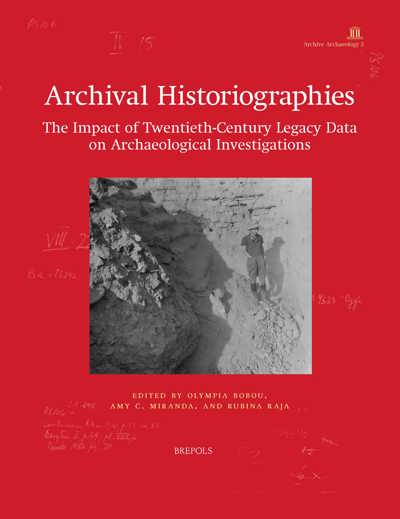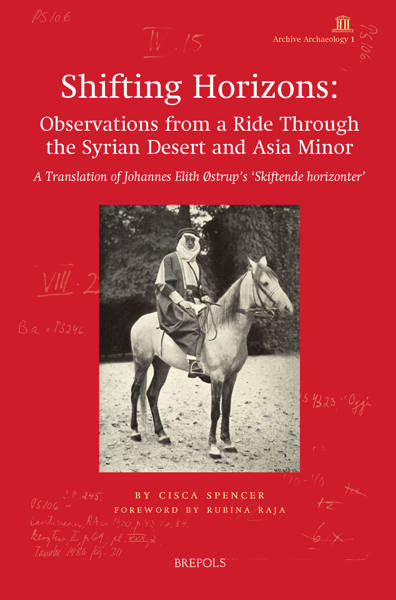
Trends in Archive Archaeology
Current Research on Archival Material from Fieldwork and its Implications for Archaeological Practice
Jon Frey, Rubina Raja (eds)
- Pages: xii + 166 p.
- Size:216 x 280 mm
- Illustrations:71 b/w, 35 col., 2 maps b/w, 2 maps color
- Language(s):English
- Publication Year:2024
- € 100,00 EXCL. VAT RETAIL PRICE
- ISBN: 978-2-503-61174-7
- Paperback
- Available
- € 100,00 EXCL. VAT RETAIL PRICE
- ISBN: 978-2-503-61175-4
- E-book
- Available
Jon Frey is associate professor of classical studies with a research focus on the architectural history of classical and post-classical Greece and Rome. As director of the Michigan State University Excavations at Isthmia, he oversees a number of legacy archaeological projects, many of which utilize innovative digital technologies to study and publish the decades of evidence in the project archives.
Rubina Raja is professor of classical archaeology and art and director of Centre for Urban Network Evolutions, Aarhus University. She had published extensively on the eastern regions of the ancient Mediterranean and Rome and has conducted fieldwork projects in a range of Mediterraean countries. One of her fields of expertise is archival studies, where she has pioneered and advocated new ways of researching, publishing and making accessible archives relating to archaeological material.
Archive archaeology has, in recent years, become increasingly acknowledged as an important component of archaeological research. However, the vast amounts of empirical data contained in such archives — among them fieldwork diaries, working notebooks, finds sheets, and photographs — together with a sense that the field is often skewed towards ‘one’s own data’, have made it difficult to develop a clear methodological approach that fits all eventualities. The result is that archive archaeology is still not always recognized for what it can bring to the discipline of archaeology, as a field of study that focuses on the contexts within which humanity developed.
This volume draws together contributions from scholars who work with archives in a variety of capacities: as fieldwork directors of decades-long excavations; as archivists interested in the history of collections; as specialists focusing on certain object groups or regions; and as researchers broadly interested in what archival material brings to the table in terms of new knowledge about archaeological situations. In showcasing contributions of work in progress, the chapters published here bring to the fore knowledge about archives that has long been overlooked, and examine how archival archaeology should be shaped in the future so that it can become more firmly integrated within archaeological practice.
Trends in Archive Archaeology: An Introduction
Jon M. Frey and Rubina Raja
What’s In a Name? The Role of Digital Gazetteers for Post-Colonial Legacy Archaeology
Anne Hunnell Chen
Digitization as Interpretation: Cautions for Archival Archaeology from Artifact Photography
Elizabeth Knott
Archives and Curatorial Work at the Davis Museum
Nicole Berlin
Photocorinthia: The Contingency of Archaeological Photography in the Corinth Excavation Archives
Peter Anthony Thompson
Archive Archaeology and Critical Disciplinary Histories: A Case Study on the Origins of the University of Cincinnati Expedition to the Troad (1932–1938)
Jacob M. Engstrom
Old Digs, Unfinished Business, Digitization, and New Data. The Committee for the Investigation of Antioch-on-the-Orontes (CIAO)
Andrea De Giorgi, Stephen Batiuk, A. Asa Eger, Julia Gearhart, Kirstin Ohrt, and Alan Stahl
The Archival Archaeology of Archaeologists: The West Cemetery at Isthmia, 1967–1990
Ulrike Krotscheck and Jon M. Frey
Futures for Archive Archaeology: Struggles, Successes, and Methodologies
Emilia Oddo




